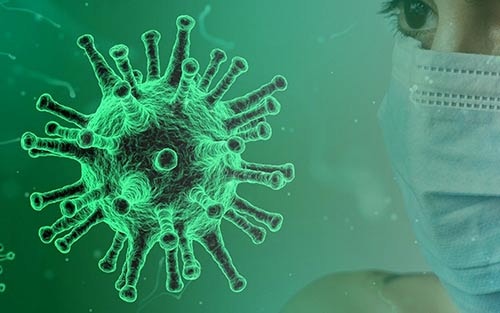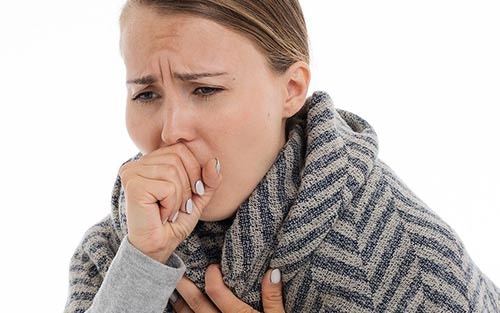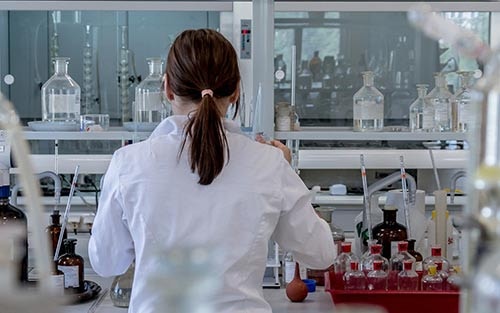Don’t allow fear of contracting the novel coronavirus disease cause significant disruptions in your daily life. Uncover facts about the disease that may surprise you and stop the cycle of fear-mongering and disinformation.

yourfootpalace.com gathered information about the novel coronavirus disease 2019 and offers commonsense approaches to keep yourself and your loved ones safe.
What is The Coronavirus?
The novel coronavirus disease known as COVID-19 or corona (CO) virus (VI) disease (D) 2019 (19) that started in China has caused a recent outbreak, reaching nearly 80 countries at the time this article was published, causes cold and flu-like symptoms leading to respiratory illness.
Coronaviruses (CoV) comprise a family of viruses that are responsible for illness ranging from the common cold to more severe diseases like 2012’s Middle East Respiratory Syndrome (MERS-CoV) and 2002’s Severe Acute Respiratory Syndrome (SARS-CoV). A “novel” coronavirus (nCoV) is a newly identified strain that had not been previously identified in humans.
Coronaviruses are zoonotic pathogens (transmitted between animals and humans). There are several known coronaviruses currently circulating amongst animals that have not yet crossed over to humans.
What Are Symptoms of COVID-19
According to the Centers for Disease Control (CDC), the following symptoms may appear 2-14 days after exposure to the disease:
• Fever
• Cough
• Shortness of Breath

Contact your primary care physician if you:
• Develop the symptoms mentioned above, and have been in close contact with a person diagnosed with COVID-19.
• Develop those symptoms and have traveled from or through a region or community with widespread or community spread of COVID-19.
Note: Due to the nature of this virus, symptoms may be mild and lead you to believe that you have the common cold or mild flu. When in doubt, see your doctor. Knowing what you have is a giant step towards the right method of treatment and recovery.
How Does COVID-19 Spread?
COVID-19 is thought to spread in a similar way that the common cold spreads from person-to-person:
• Between individuals in close contact (within 6 feet) of each other
• By form of respiratory droplets ejected into the air when an infected person coughs or sneezes
Asymptomatic Person-to-Person Spreading – While people are considered to be most contagious when they are most symptomatic, there have been reports of COVID-19 spreading before the manifestation of any noticeable symptoms. However, this is not considered the primary way the virus spreads.
Infected Surfaces or Objects – There is a possibility that one may get COVID-19 by touching a contaminated object or surface and then touching their eyes, mouth, or nose. However, this too is not considered the primary way the virus spreads.
Note: The COVID-19 causing virus has displayed its capability to spread easily and sustainably within communities of affected regions.
How Is COVID-19 Diagnosed?
Since the majority of COVID-19 cases display similar symptoms to the common cold or the flu, physical exams are not a reliable means of diagnosis. A coronavirus laboratory test is required to confirm a COVID-19 diagnosis.

When Should I Seek Medical Attention for COVID-19 Symptoms?
With COVID-19 spreading across the nation, the urge (panic) to be seen by your doctor may be heightened. The following scenarios will help you determine whether or not to seek medical attention:
Mild Symptoms – If your symptoms can be managed with over-the-counter cold and flu medication, do so in the comfort of your home.
Compounding Symptoms – If your cough is accompanied by a fever, call your primary care physician for instructions. The following symptoms may indicate the development of pneumonia and should be addressed by your doctor immediately:
• Shortness of Breath
• Relentless Fever
• Lethargy
• Muscle Weakness
Pneumonia is a common condition in those with severe COVID-19. If you are over 60, have diabetes, heart disease, or other underlying medical conditions, you should act quickly to seek medical attention if you are experiencing multiple symptoms and/or suspect you have contracted the coronavirus.
Extreme Symptoms – If your symptoms have left you feeling like your situation is dire, you should get to an urgent care facility or an emergency room. If you feel impaired by your symptoms and do not have someone to transport you, call 911 immediately.
Note: Wherever you decide to go (unless being transported by ambulance), call ahead and inform them of your conditions. This allows them to prepare for your arrival and take measures to protect other patients at the facility.
As mentioned earlier, you should seek medical attention if you:
• Develop any symptoms related to COVID-19, and have been in close contact with a person diagnosed with the disease.
• Develop those symptoms and have traveled from or through a region or community with widespread or community spread of COVID-19.
Disclaimer: As each individual may experience illnesses and discomfort differently, it is imperative to seek medical attention when you feel it is necessary.
How Do I Prevent Contracting Coronavirus?
In many ways, measures to prevent the coronavirus disease 2019 are identical to the measures we use to prevent the spread of other respiratory diseases. Those measures include:
• Thoroughly wash your hands frequently with soap and water for at least 20 seconds.
• Avoid close contact (remaining within 6 feet) with people who are sick and/or showing symptoms.
• Avoid touching your eyes, nose, and mouth with unwashed or unsanitized hands.
• Cough or sneeze into a tissue, then discard the tissue in the trash.
• Disinfect frequently touched or handled objects and surfaces using household cleaning sprays or wipes.
• Stay at home when you are sick.
Watch this video to learn more about effectively washing your hands.
Follow CDC’s recommendations for using a facemask.
1. CDC does not recommend that people who are well wear a facemask to protect themselves from respiratory diseases, including COVID-19.
2. Facemasks should be used by people who show symptoms of COVID-19 to help prevent the spread of the disease to others.
3. The use of facemasks is also crucial for health workers and people who are taking care of someone in close settings (at home or in a health care facility).
Note: If soap and water are not readily available when washing your hands, use an alcohol-based hand sanitizer (60% alcohol). Read more about washing hands at cdc.gov/handwashing/
The Truth About Novel Coronavirus Disease 2019
In this article, you discovered defining information about novel coronavirus disease 2019 or COVID-19, how it is contracted, diagnosed, and how/when to seek medical attention.
By remaining calm and taking responsible action to minimize exposure to COVID-19, you significantly reduce your risk of contracting the disease.
When you misuse facemasks or propagate false/inaccurate information, you create a false sense of safety, contribute to public panic, and make yourself more vulnerable to the disease.
Sources:
cdc.gov/coronavirus/2019-ncov/about/symptoms.html
hopkinsmedicine.org/health/conditions-and-diseases/coronavirus
who.int/emergencies/diseases/novel-coronavirus-2019/advice-for-public
washingtonpost.com/health/2020/03/03/coronavirus-symptoms-test/
businessinsider.com/coronavirus-compared-to-flu-mortality-rates-2020-3
(706) 521-5290
(678) 963-5958